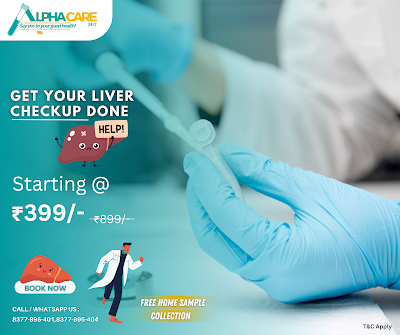How to prevent kidney stones I symptoms of kidney stone I how to pass a kidney stone in 24 hours I How to avoid kidney stones I How to pass kidney stones fast I How kidney stones are formed?
How to prevent kidney stones ?
The kidneys are a pair of bean-shaped organs positioned near
the base of the rib cage that are primarily in charge of:
- Filtration of waste, surplus water, and other pollutants from the blood.
- Controlling the pH, salt, and potassium levels in the body.
- Controlling blood pressure and red blood cell formation
- Increasing calcium absorption via activating a kind of vitamin D.
A kidney stone is a solid mass formed in the kidney from
minerals and salts. Kidney stones can grow to the size of a golf ball while
remaining sharp and crystalline. A kidney stone might remain in the kidney or
move through the urinary tract to the ureters, bladder, and urethra.
High quantities of calcium, oxalate, and phosphorus in the
urine produce kidney stones. These minerals are commonly present in urine and
are not harmful at low concentrations.
What are the different types of kidney stones?
Kidney stones are classified into four categories, as
follows:
· Calcium Stones: The most prevalent type of
kidney stone is calcium stone. Extra calcium that isn't needed by the bones and
muscles usually ends up in the kidneys and is flushed out with urine. If this
does not occur, the calcium remains in the kidneys and combines with other waste
products to create a kidney stone. It may be useful to limit your intake of
foods like peanuts, spinach, beets, chocolate, and sweet potatoes.
· Uric Acid Stones: A uric acid stone can form
when the urine contains an excessive amount of acid. Certain hereditary
variables may potentially enhance the likelihood of uric acid stones. Purines
are a natural chemical component found in red meat, organ meats, and shellfish.
A high purine consumption results in increased uric acid synthesis and a
greater acid load for the kidneys to remove.
A balanced diet high in vegetables and
fruits, whole grains, and low-fat dairy products may be advantageous. Limiting
sugary foods and beverages, alcohol, and animal protein may also be
advantageous.
· Struvite stones: form as a result of an illness,
such as a urinary tract infection. These stones can form unexpectedly and grow
to be quite huge.
· Cystine Stones: Cystine stones are caused by
cystinuria, a genetic condition that is handed down through families.
Cystinuria is a condition in which the amino acid cystine leaks from the
kidneys into the urine.
·
A balanced diet high in vegetables and fruits,
whole grains, and low-fat dairy products may be advantageous. Limiting sugary
foods and beverages, alcohol, and animal protein may also be advantageous.
· Struvite stones: form as a result of an illness,
such as a urinary tract infection. These stones can form unexpectedly and grow
to be quite huge.
· Cystine Stones: Cystine stones are caused by
cystinuria, a genetic condition that is handed down through families.
Cystinuria is a condition in which the amino acid cystine leaks from the
kidneys into the urine.
Visit
Are you at risk of having kidney stones?
The following factors enhance the likelihood of acquiring
kidney stones:
- Not drinking enough liquids.
- There is a family or personal history of kidney stones.
- Recurrent urinary tract infections
- Urinary tract obstruction.
- Hypercalciuria, or excessive calcium levels in the urine
- High blood pressure
- Diabetes \Obesity
- Osteoporosis
- Gout
- Kidney cysts
- Cystic fibrosis
- Hyperparathyroidism
- Inflammatory bowel disease
- Chronic diarrhoea
- Gastric bypass surgery
- Medications
- Certain diets, such as those heavy in:
- Animal protein
- Salt \Sugar
How are kidney stones avoided?
The following measures can be taken to lower the overall
risk of kidney stones:
- Consume liquids. Drinking adequate liquids each day is usually the best method to help prevent most types of kidney stones. Drinking enough of drinks dilutes the pee and helps flush out minerals that could form stones.
- Limit your salt intake. High salt intake raises calcium levels in the urine, increasing the likelihood of stone formation. A low-salt diet is also important for blood pressure control.
- Avoid consuming a lot of animal protein. High protein intake causes the kidneys to expel more calcium, which may result in more kidney stones forming.
- Limit foods high in oxalate, such as spinach, berries, and chocolate.
- If a person is overweight or obese, he or she should lose weight.
- Take any medications that your doctor has prescribed.
How are kidney stones identified?
To identify kidney stones, the doctor may investigate the
following factors:
- Examination of the body
- Urinalysis offers information on the composition of the urine as well as indicators of infection.
- Blood testing can aid in the detection of problems.
- Imaging examinations aid in the identification of stones, their size and location, and any problems.
To get Your Kidney Function Test Done You can Connect with us @ www.alphacare247.in
Or Call us @ 8377895404,8377895401 to book an appointment for Kidney Stone Test.
#kidneystone #kidneyhealth #kidney #kidneydisease #kidneystones #health #kidneyfailure #medicine #alternativemedicine #urology #healthylifestyle #ayurveda #kidneyinfection #natural #herb #herbal #kidneytransplant #alternativetreatment #kidneys #herbalayurved #dietplan #kidneystoneremoval #kidneydiseasesymptoms #ayurvedaliving #reasonsforkidneydisease #kidneydonor #nature #ayurvedaeveryday #ayurvedafood #yoga







Comments
Post a Comment